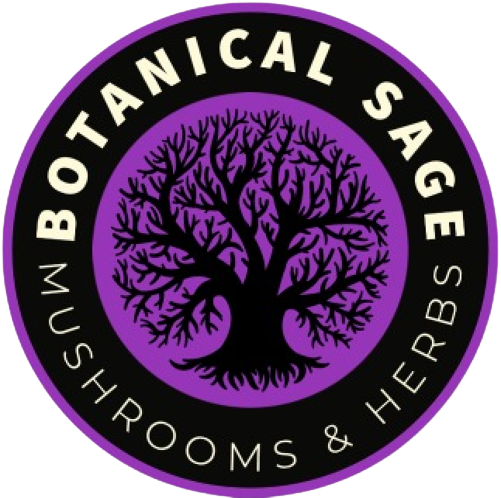Botanical Sage
Basil Sweet Cut
Basil Sweet Cut
Couldn't load pickup availability
Basil, also known as Ocimum basilicum, is a popular culinary herb with a long history of use in traditional medicine. Here are some of the potential medicinal uses of basil:
-
Anti-inflammatory Properties: Basil contains compounds such as eugenol and rosmarinic acid, which have anti-inflammatory properties. It may help reduce inflammation in the body and alleviate symptoms of inflammatory conditions such as arthritis, asthma, and inflammatory bowel disease.
-
Antimicrobial Activity: Basil has antimicrobial properties that help inhibit the growth of bacteria, viruses, fungi, and parasites. It may help prevent infections, promote wound healing, and protect against foodborne illnesses and waterborne diseases.
-
Antioxidant Effects: Basil is rich in antioxidants such as flavonoids, phenols, and polyphenols. These antioxidants help neutralize free radicals, reduce oxidative stress, and protect cells from damage. Basil may help prevent chronic diseases, slow down aging processes, and promote overall health and longevity.
-
Respiratory Health: Basil is commonly used to support respiratory health and alleviate respiratory conditions such as coughs, colds, bronchitis, and asthma. It has expectorant and bronchodilator properties that help loosen phlegm and mucus, soothe irritated airways, and improve breathing.
-
Digestive Health: Basil is believed to support digestive health and alleviate gastrointestinal issues such as indigestion, bloating, and constipation. It stimulates digestive enzymes, improves nutrient absorption, and promotes bowel regularity. Basil may also help treat stomach ulcers and promote healing of the digestive tract.
-
Stress Relief: Basil is considered a natural stress reliever and mood enhancer. It helps reduce anxiety, depression, and mental fatigue, promoting a sense of calm and well-being. Basil may also improve cognitive function, memory, and concentration.
-
Cardiovascular Health: Some research suggests that basil may have beneficial effects on cardiovascular health. It helps lower cholesterol levels, regulate blood pressure, and improve blood circulation. Basil may also help prevent the formation of blood clots and reduce the risk of heart disease and stroke.
-
Diabetes Management: Basil may help regulate blood sugar levels and improve insulin sensitivity. It contains compounds such as eugenol and flavonoids that may help lower blood glucose levels. Basil may be beneficial for individuals with diabetes or at risk of developing diabetes.
-
Skin Health: Basil is sometimes used topically in skincare formulations for its antibacterial and anti-inflammatory properties. It may help treat acne, eczema, and other skin conditions by reducing inflammation, fighting infections, and promoting skin healing.
-
Oral Health: Basil is used in oral care products for its antimicrobial properties. It may help prevent dental problems such as cavities, gum disease, and bad breath. Basil mouthwashes or toothpastes may promote oral hygiene and overall dental health.
It's important to note that while basil offers several potential health benefits, scientific research on its efficacy and safety is ongoing. As with any herbal remedy or dietary supplement, it's advisable to consult with a healthcare professional before using basil for medicinal purposes, especially if you have any underlying health conditions or are pregnant or breastfeeding.


